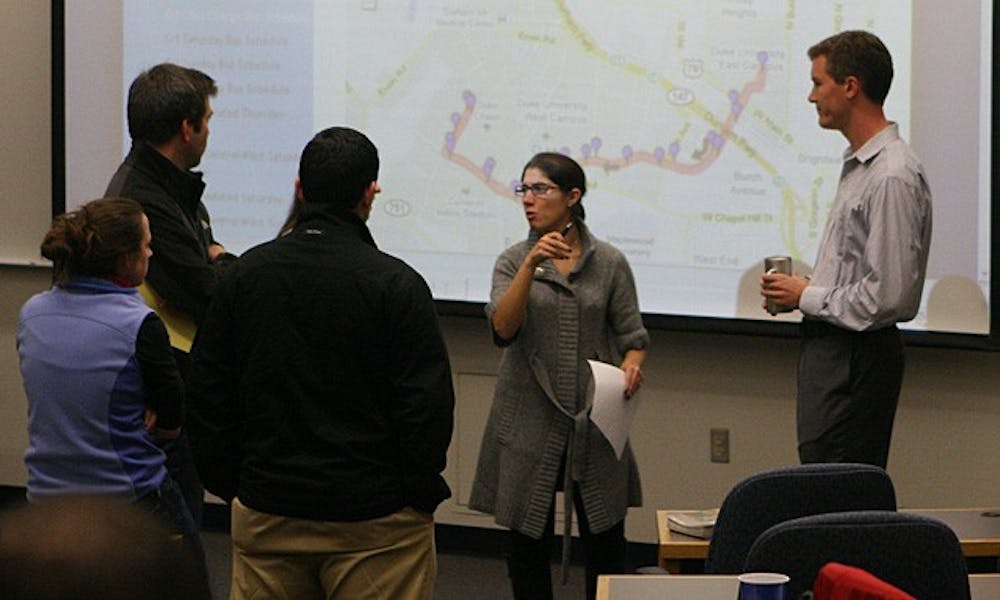In addressing the University’s remaining deficit, Executive Vice President Tallman Trask emphasized that academic programs remain a top priority.
Trask gave an overview of Duke’s budget at the Graduate and Professional Student Council meeting Tuesday night. He said the University still has to cut $30 million from its deficit as part of the three-year plan to reduce its $2 billion annual budget by $100 million. Trask noted that the University has taken significant steps to cut costs since the 27.5 percent drop in the value of the University’s endowment in fiscal year 2008-2009 but added that reductions are still necessary.
“Unfortunately, people talk about low-hanging fruit. All of the low-hanging fruit has been picked,” he said.
Although the University plans to scale back in certain areas, Trask stressed that administrators intend to protect academic programs. The Arts and Sciences graduate programs have been most affected by budget difficulties, Trask said, adding that they are highly endowment-dependent. On the other hand, professional schools including the Fuqua School of Business that are more tuition based are doing relatively well financinally, he said.
Trask also referred to the “bridge funding” approved by the Board of Trustees in 2009 to “insulate” the three-year transition. This $165 million in funding, which was accrued from the endowment, helped to spread cuts over time in order to avoid making large, swift reductions. Trask added that in employing this strategy, Duke has circumvented the types of issues encountered at peer institutions such as Stanford University and Dartmouth College.
“While we had accumulated a fair amount of money, we were not accumulating money just so we could say we had—we were accumulating it to use it for good purposes,” he said. “In some sense, it was a rainy day fund of one sort or another, and it was certainly raining pretty hard.”
The transition is set to end in fiscal year 2012-2013, Trask said, adding that Duke hopes to institute a salary increase July 2011 that, if instituted, will be the first in three years.
In other business:
Transportation Demand Coordinator Brian Williams spoke with the council about parking issues on campus.
Rather than build more parking lots, the University plans to encourage alternative forms of transportation including carpooling, biking and walking.
“Duke is behind in what incentives it offers. Right now Duke doesn’t have the budget set up very well to provide lots of incentives,” Williams said.
He said the funds for building incentives will come in part from increased parking pass rates in Fall 2011. Williams noted that parking passes at Duke are currently less expensive than those at other schools.
Get The Chronicle straight to your inbox
Signup for our weekly newsletter. Cancel at any time.

